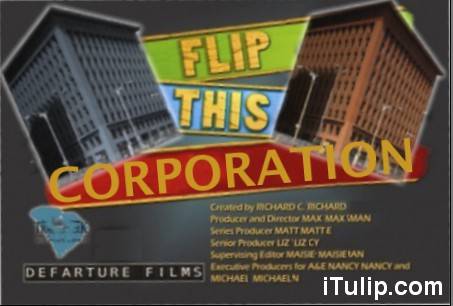 |
We asked in Most Hedge Funds Suck: "Question is, how much more of this abuse can the U.S. economy take? We'd better hope it can take a lot because in 2007, the hedge fund, private equity and housing bubbles are all going to collapse together."
How is a CLO that creates credit for a private equity firm to use to buy an over-priced company which price was set by an investment bank different from a CDO used to back a goofy mortgage that a lender handed out to a buyer of a home which price was set by an appraiser who got a kickback from the lender? Not much, except that more than $1 trillion in the former has already been closed this year. How many people do all of these over-leveraged companies employ? A million? Ten million? More? We shall see.
Today we hear:
LBO Debt Alarms Fidelity, Lehman, TIAA-CREF Managers
July 5, 2007 (Bloomberg)
The world's biggest bondholders have had their fill of leveraged buyouts, convinced that increasing mortgage delinquencies will drag down the U.S. economy and drive debt-laden companies into default.
"There are some very scary analogies between high yield and the mortgage market," said Kevin Lorenz, a managing director who oversees $2.5 billion of high-yield assets at TIAA- CREF in New York. "You cannot do fundamental analysis and believe that those are credit-worthy companies."
Leveraged buyouts caused sales of high-risk, high-yield debt to rise 70 percent to a record $1 trillion during the first half of the year, according to data compiled by Bloomberg. Bonds and loans rated below BBB- by Standard & Poor's and Baa3 by Moody's Investors Service are considered below investment grade.
"Demand has spiraled out of control," said Sethi, who helps oversee $2 billion at Fidelity International, an affiliate of Boston-based Fidelity Investments.
"It's the triumph of liquidity over fundamentals," said Peter Harvey, who oversees $3.8 billion of assets as head of credit at Cazenove Capital Management in London. "The creation of credit funds is unlike anything we've ever seen."
We have interviewed a pile of industry people over the past few weeks and are coming away with a very disturbing picture. We are always hoping to be surprised, but haven't been yet, except on the downside. July 5, 2007 (Bloomberg)
The world's biggest bondholders have had their fill of leveraged buyouts, convinced that increasing mortgage delinquencies will drag down the U.S. economy and drive debt-laden companies into default.
"There are some very scary analogies between high yield and the mortgage market," said Kevin Lorenz, a managing director who oversees $2.5 billion of high-yield assets at TIAA- CREF in New York. "You cannot do fundamental analysis and believe that those are credit-worthy companies."
Leveraged buyouts caused sales of high-risk, high-yield debt to rise 70 percent to a record $1 trillion during the first half of the year, according to data compiled by Bloomberg. Bonds and loans rated below BBB- by Standard & Poor's and Baa3 by Moody's Investors Service are considered below investment grade.
"Demand has spiraled out of control," said Sethi, who helps oversee $2 billion at Fidelity International, an affiliate of Boston-based Fidelity Investments.
"It's the triumph of liquidity over fundamentals," said Peter Harvey, who oversees $3.8 billion of assets as head of credit at Cazenove Capital Management in London. "The creation of credit funds is unlike anything we've ever seen."
What we get from interviewing the CDO managers is the observation that the transition from mark-to-model to mark-to-market for the private equity guys is going to be much worse than the transition from mark-to-model to mark-to-market for CLOs.
What we get from interviewing the private equity managers is the conviction that the transition from mark-to-model to mark-to-market for the CDO guys is going to be much worse than the impact on the private equity guys of the transition from market-to-model to market-to-market for CLOs.
We suspect both are correct. To settle this dispute, we'd like to interview the geeks instead of the jocks, but access is carefully managed. We talked to the CEO of Challenger Grey & Christmas, John Challenger, who weighed in with the opinion that the collapse of the private equity bubble poses a real threat to the U.S. economy, the first to share our opinion on that.
iTulip Select subscribers can hear the whole interview here.
Also see: Layoff plans off 22% in June, Challenger says (Marketwatch) July 7, 2007


Comment